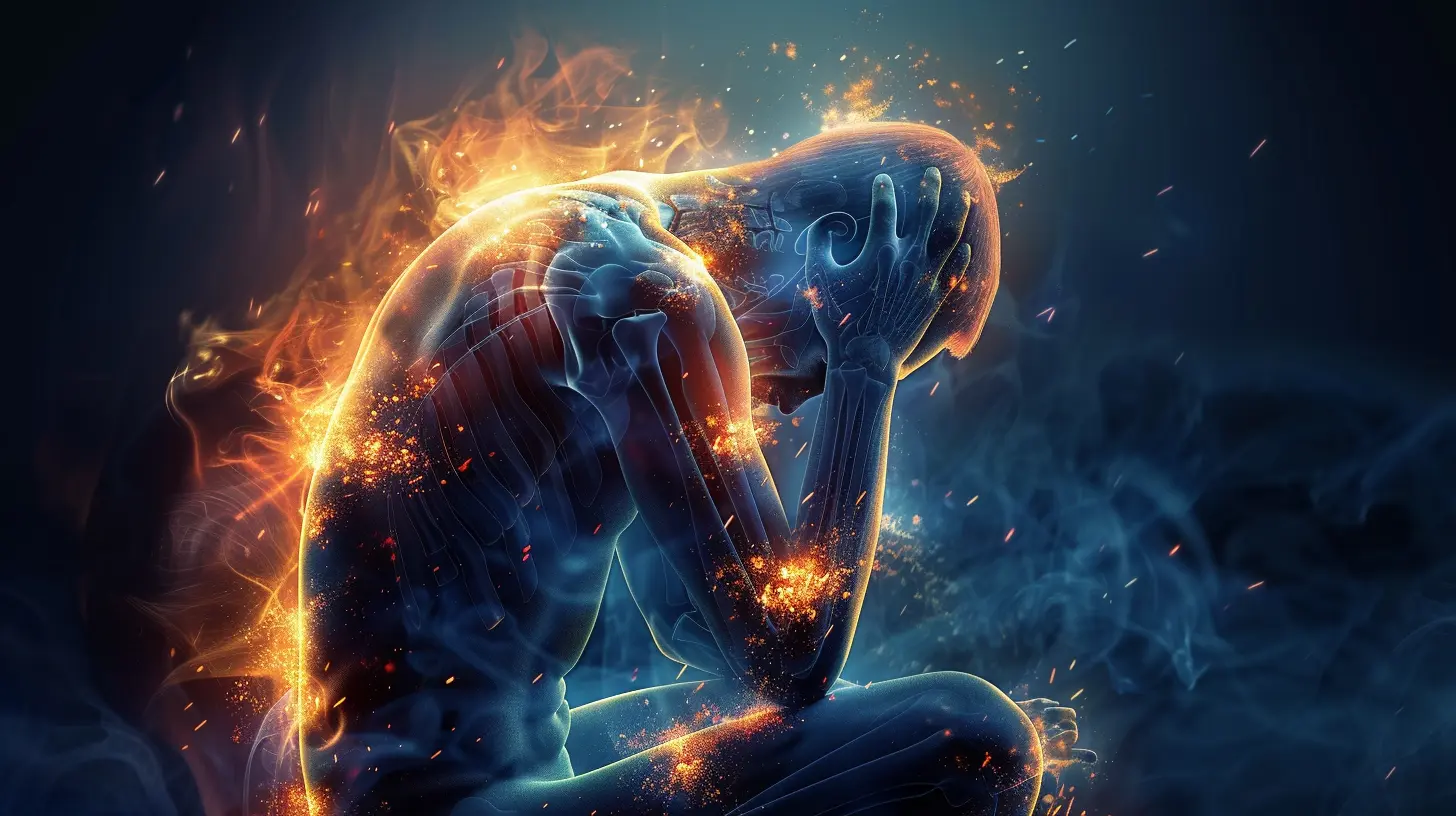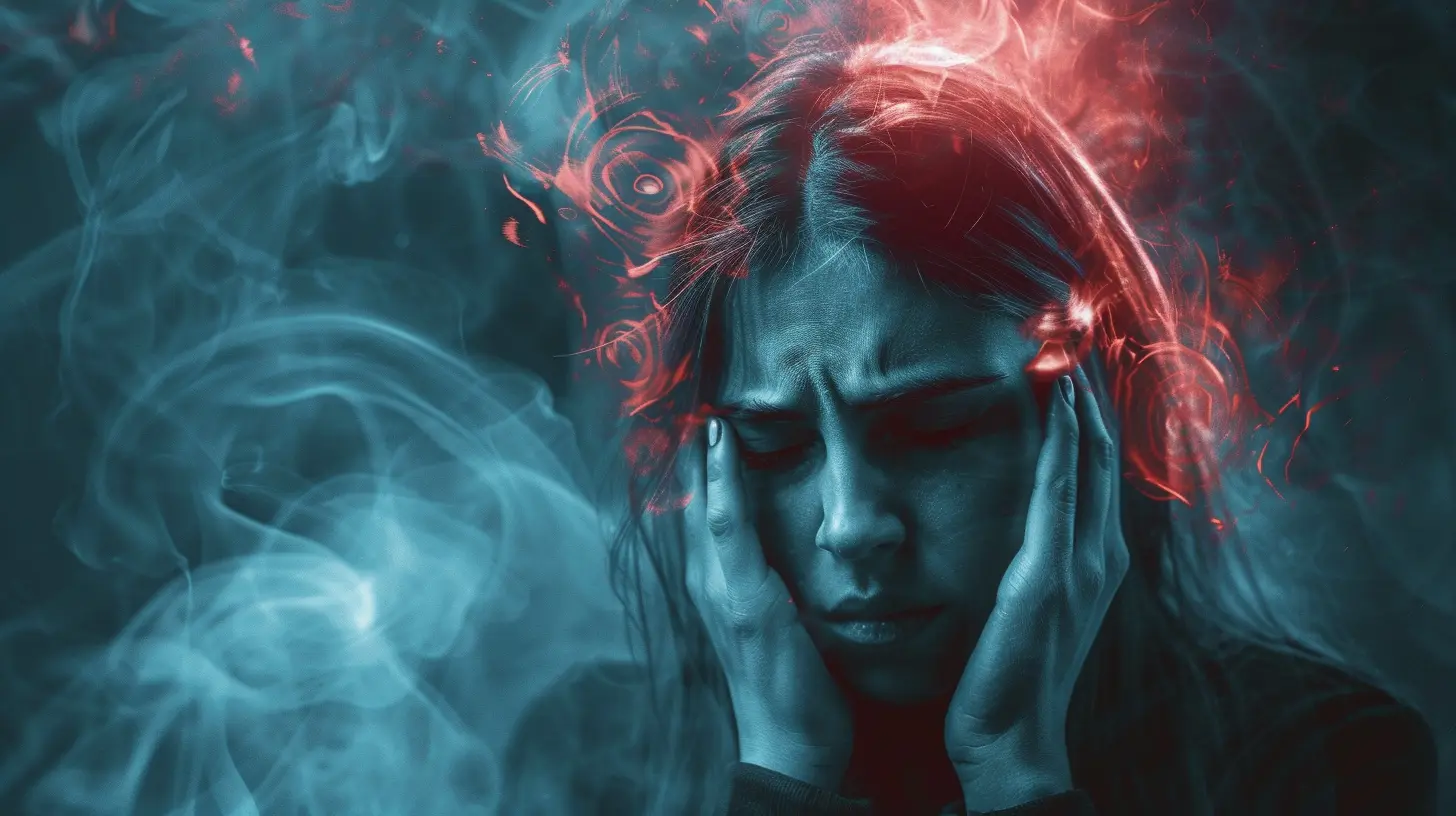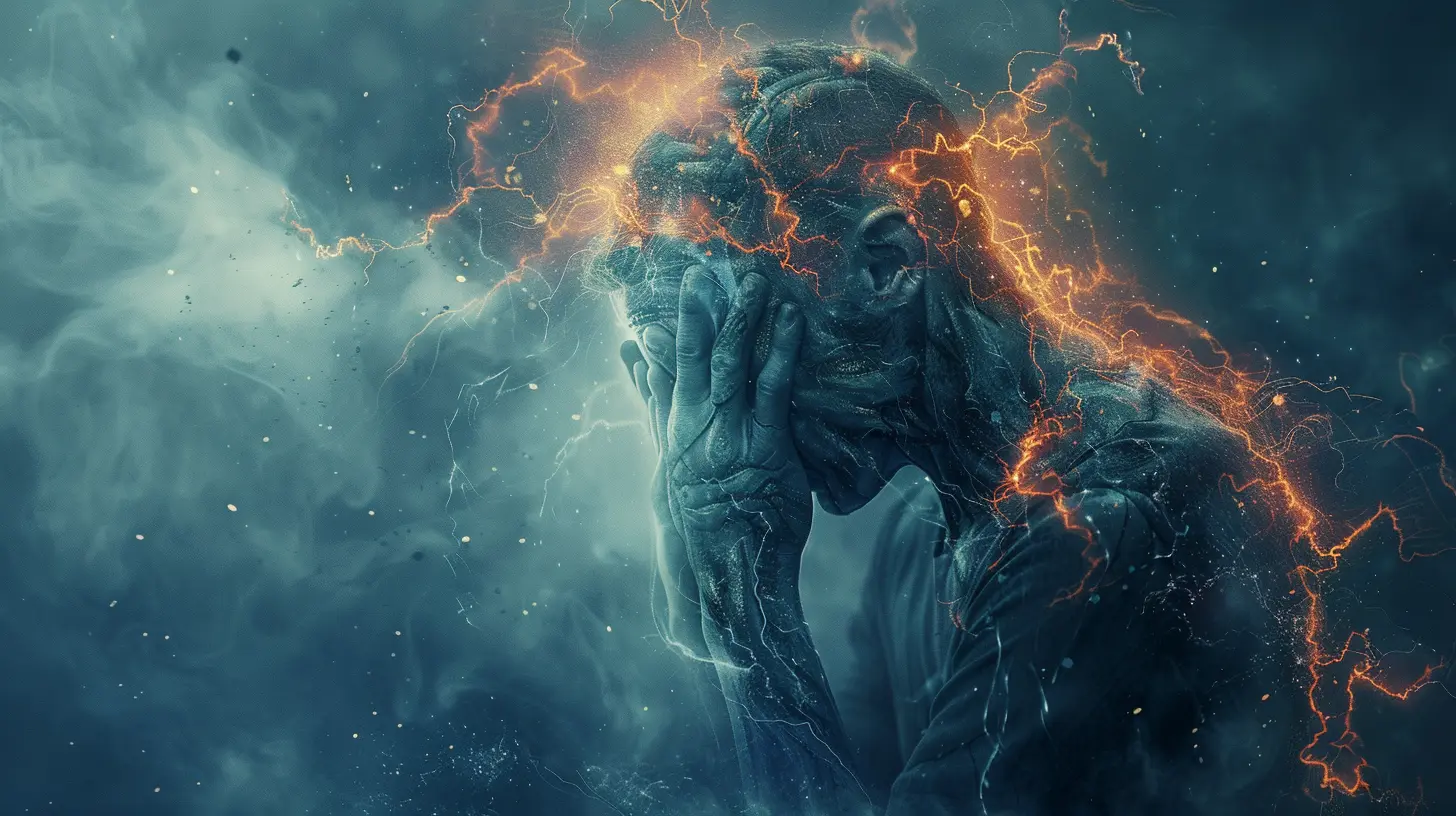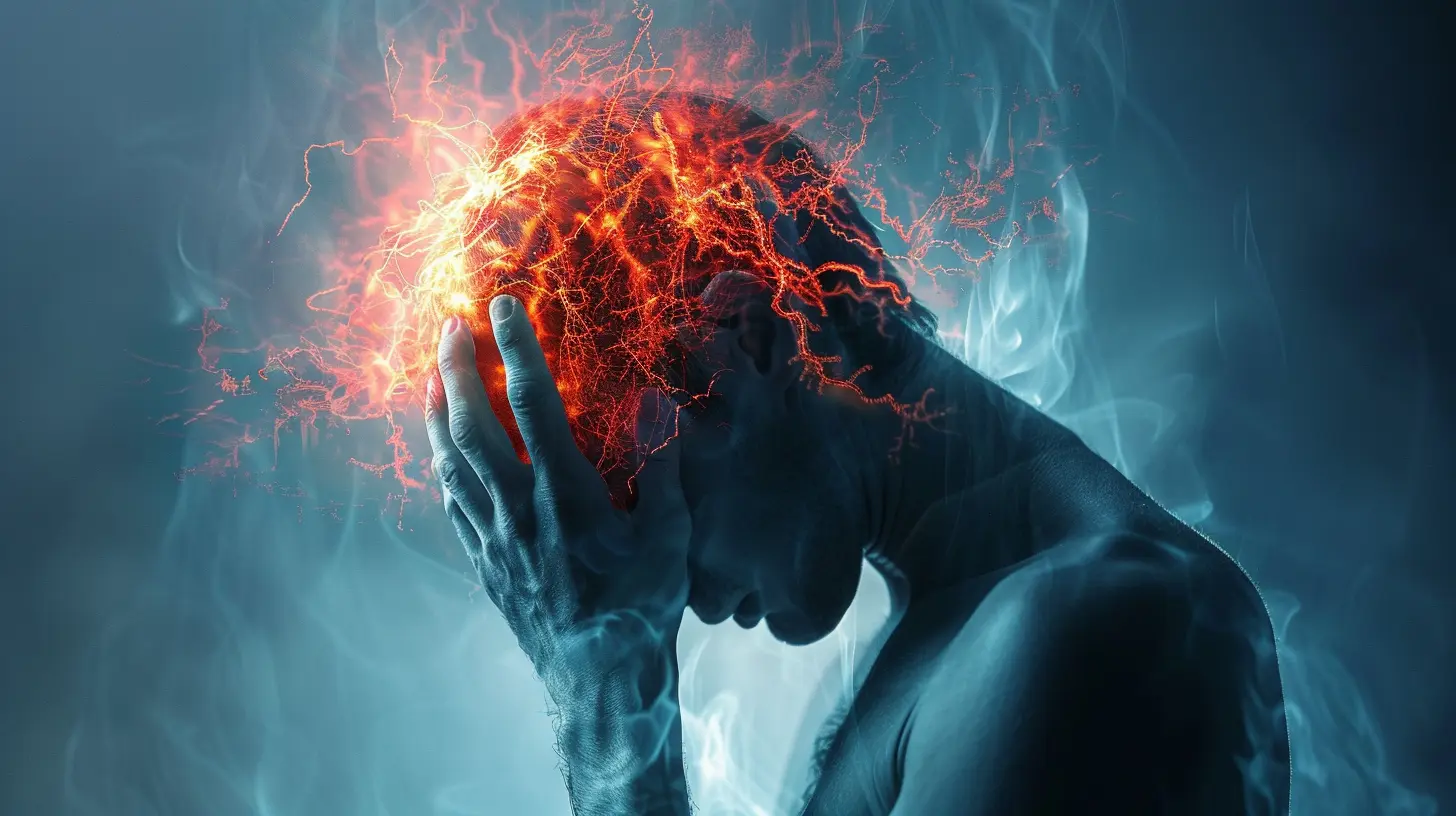18 April 2025
Have you ever felt an ache in your body that doctors couldn't quite explain? Or maybe you've experienced pain that seems to flare up during stressful situations? If so, you're not alone. Chronic pain and psychosomatic disorders have puzzled experts for years, leaving many wondering: Are they connected?
Well, the answer isn’t as straightforward as you might think. Let’s dive into the world of pain and the mind-body connection to unravel the truth behind these mysterious conditions. 
What is Chronic Pain?
Before we connect the dots, let’s first understand chronic pain. Unlike acute pain, which is a short-term response to an injury, chronic pain sticks around—often lasting for months or even years. It can manifest in various ways, including:- Persistent back pain
- Migraines or tension headaches
- Joint pain (like in arthritis)
- Unexplained muscle aches
Sometimes, chronic pain has a clear cause, like nerve damage or an underlying medical condition. But in other cases, medical tests reveal nothing abnormal, leaving both patients and doctors baffled. That’s where psychosomatic disorders come into play. 
Understanding Psychosomatic Disorders
Psychosomatic disorders—also called somatic symptom disorders—occur when psychological distress manifests as physical symptoms. Essentially, your emotions and thoughts can trigger real, tangible pain. These disorders are not “all in your head” (as some skeptics might claim). The pain and discomfort are very real, even if no physical cause is found.Some common psychosomatic symptoms include:
- Chronic pain (back, neck, or muscle pain)
- Digestive issues (like irritable bowel syndrome)
- Fatigue and exhaustion
- Shortness of breath or chest pain
Now, the big question is: Can chronic pain and psychosomatic disorders be linked? Let’s break it down. 
The Mind-Body Connection: How Stress Fuels Pain
Ever noticed that your headaches get worse when you're stressed? Or that your back pain flares up during tough times? That’s no coincidence.Our minds and bodies are deeply connected. When we experience stress, our bodies release cortisol and adrenaline, which can lead to inflammation, muscle tension, and nerve sensitivity. Over time, this can contribute to chronic pain conditions.
How Do Mental Health Issues Affect Pain?
- Anxiety and Depression: Both have been linked to increased pain sensitivity. When you’re anxious or depressed, your brain processes pain signals differently, making them feel more intense.- Trauma and PTSD: People with past trauma often carry tension in their bodies, leading to chronic muscle aches and tightness.
- Emotional Suppression: Bottling up emotions can manifest as physical pain. If you’ve ever felt a “knot” in your stomach during stressful times, you know what I mean.
The bottom line? Your emotional and psychological state plays a crucial role in how your body experiences pain. 
Psychosomatic Pain or Chronic Illness? How to Tell the Difference
If you’re dealing with chronic pain, you might wonder: Is this a medical issue or a psychosomatic condition? Here’s how to differentiate:1. Medical Tests Show No Clear Cause: If multiple tests come back normal, but you’re still experiencing pain, it could be psychosomatic.
2. Pain Fluctuates with Stress Levels: Does your pain worsen during stressful times but improve when you’re relaxed? That’s a red flag.
3. Multiple Symptoms with No Pattern: Psychosomatic disorders often cause a range of symptoms—fatigue, digestive issues, and body pain—without a specific diagnosis.
4. Traditional Treatments Aren’t Effective: If painkillers, physical therapy, or other conventional treatments aren’t helping, psychological factors might be at play.
That being said, it’s crucial not to dismiss real medical conditions. Always consult a doctor to rule out physical causes before assuming the pain is purely psychological.
How to Manage Psychosomatic and Chronic Pain
If you suspect your pain has a psychological component, don’t worry—there are ways to manage it! Here are some effective strategies:1. Address the Emotional Triggers
Since stress and emotions play a big role in chronic pain, finding healthy ways to manage them is key. Consider:- Therapy (CBT or Mindfulness-Based Therapy): Talking to a therapist can help identify emotional triggers and reframe negative thought patterns.
- Journaling: Writing down your thoughts can help you process emotions and reduce stress.
- Meditation & Deep Breathing: Calming the nervous system through mindfulness can ease both stress and physical pain.
2. Move Your Body
While pain might make you want to stay in bed, movement is essential for pain management. Try:- Gentle Yoga or Stretching: Improves mobility, reduces tension, and promotes relaxation.
- Low-Impact Exercises (like swimming or walking): Keeps your body active without putting too much strain.
- Progressive Muscle Relaxation: Helps release built-up tension in the muscles.
3. Train Your Brain to Process Pain Differently
Pain is processed in the brain, which means you can retrain your brain how to react to it. Methods like:- Neuroplasticity Exercises: Focus on shifting attention away from pain and towards positive sensations.
- Cognitive Behavioral Therapy (CBT): Helps reframe how you perceive pain, making it feel less overwhelming.
- Visualization Techniques: Imagine the pain fading away, reinforcing positive brain pathways.
4. Prioritize Sleep and Nutrition
Lack of sleep and poor diet can amplify pain perception. Simple lifestyle changes like:- Getting 7-9 hours of quality sleep
- Avoiding inflammatory foods (processed sugars, excessive caffeine/alcohol)
- Adding magnesium-rich foods (nuts, seeds, leafy greens) to reduce muscle tension
Small changes can create big shifts in how your body perceives pain over time.
Final Thoughts: Are Chronic Pain and Psychosomatic Disorders Linked?
In many cases, yes. Chronic pain and psychosomatic disorders are often intertwined through the mind-body connection. While not all chronic pain is psychosomatic, emotional and psychological factors can significantly influence how we experience pain.So, if you’re dealing with unexplained chronic pain, it might be time to look beyond just the physical and explore the emotional and psychological layers as well. Your body might be trying to tell you something—and it’s worth listening.




Leo Tucker
This article effectively highlights the interplay between chronic pain and psychosomatic disorders, emphasizing the importance of addressing both psychological and physical aspects in treatment.
April 19, 2025 at 5:00 PM